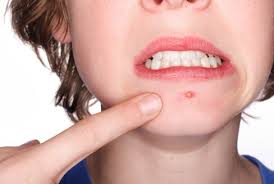记忆方法
【记】blame 责备的是缺点;problem 问题 缺点的后半部
1. blemish――读:布莱迷失,英国首相布莱尔丢了,这是皇室的耻辱,这个单词是污点、玷污
2. BB霜(化妆用品): BB 霜,是Blemish Balm的简称,作用主要是遮瑕、调整肤色、防晒、细致毛孔,能打造出Nude Look(裸妆效果)的感觉。
3. problem => blemish.
1. blemish――读:布莱迷失,英国首相布莱尔丢了,这是皇室的耻辱,这个单词是污点、玷污
2. BB霜(化妆用品): BB 霜,是Blemish Balm的简称,作用主要是遮瑕、调整肤色、防晒、细致毛孔,能打造出Nude Look(裸妆效果)的感觉。
3. problem => blemish.
中文词源
blemish 斑点
词源同bleach, 漂白,白斑,或其它斑点。
英语词源
- blemish (v.)
- early 14c., "to hurt, damage," from Old French blemiss- "to turn pale," extended stem of blemir, blesmir "to make pale; stain, discolor," also "to injure" (13c., Modern French blêmir), probably from Frankish *blesmjan "to cause to turn pale," or some other Germanic source, from Proto-Germanic *blas "shining, white," from PIE root *bhel- (1) "to shine, flash, burn" (see bleach (v.)).
The order of appearance of senses in Middle English is "hurt, damage;" "impair morally, sully" (late 14c.); "mar, spoil, injure" (early 15c.); "to mar the beauty or soundness of" (mid-15c.). Related: Blemished; blemishing. - blemish (n.)
- 1520s, from blemish (v.).
权威例句
- 1. This is the one blemish on an otherwise resounding success.
- 如果没有这个小小的失误,这就是一次彻底的胜利。
- 2. A mole is a blemish on a person's skin.
- 黑痣在人的皮肤上是一个疵点.
- 3. He was pilloried, but she escaped without blemish.
- 他受到公众的批评, 她却名声未损地得以逃脱.
- 4. There wasn't a blemish on his body.
- 他身上一块疤也没有.
- 5. One bad deed can blemish a good reputation.
- 一次不良的行为可损害好的名声.

